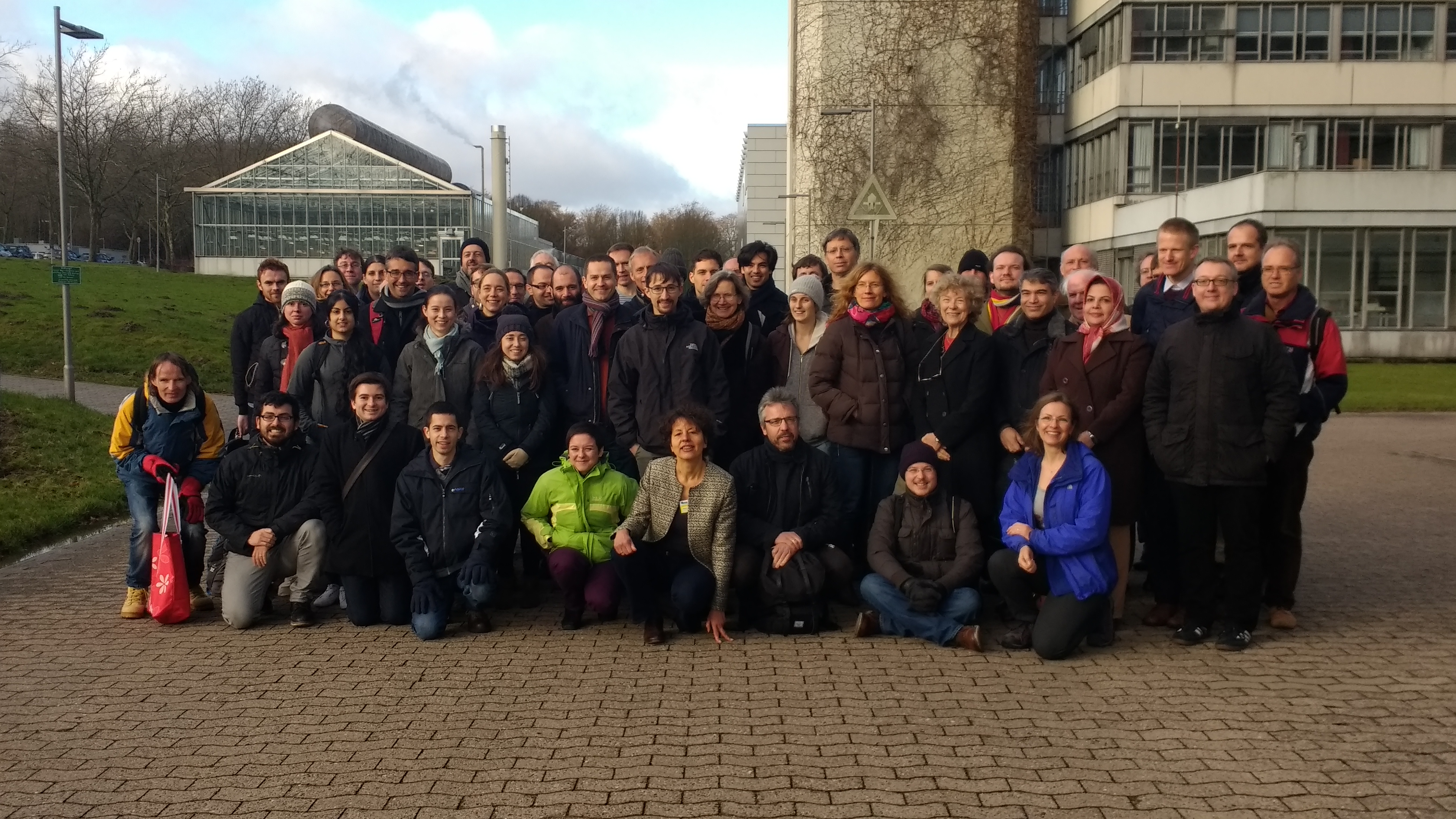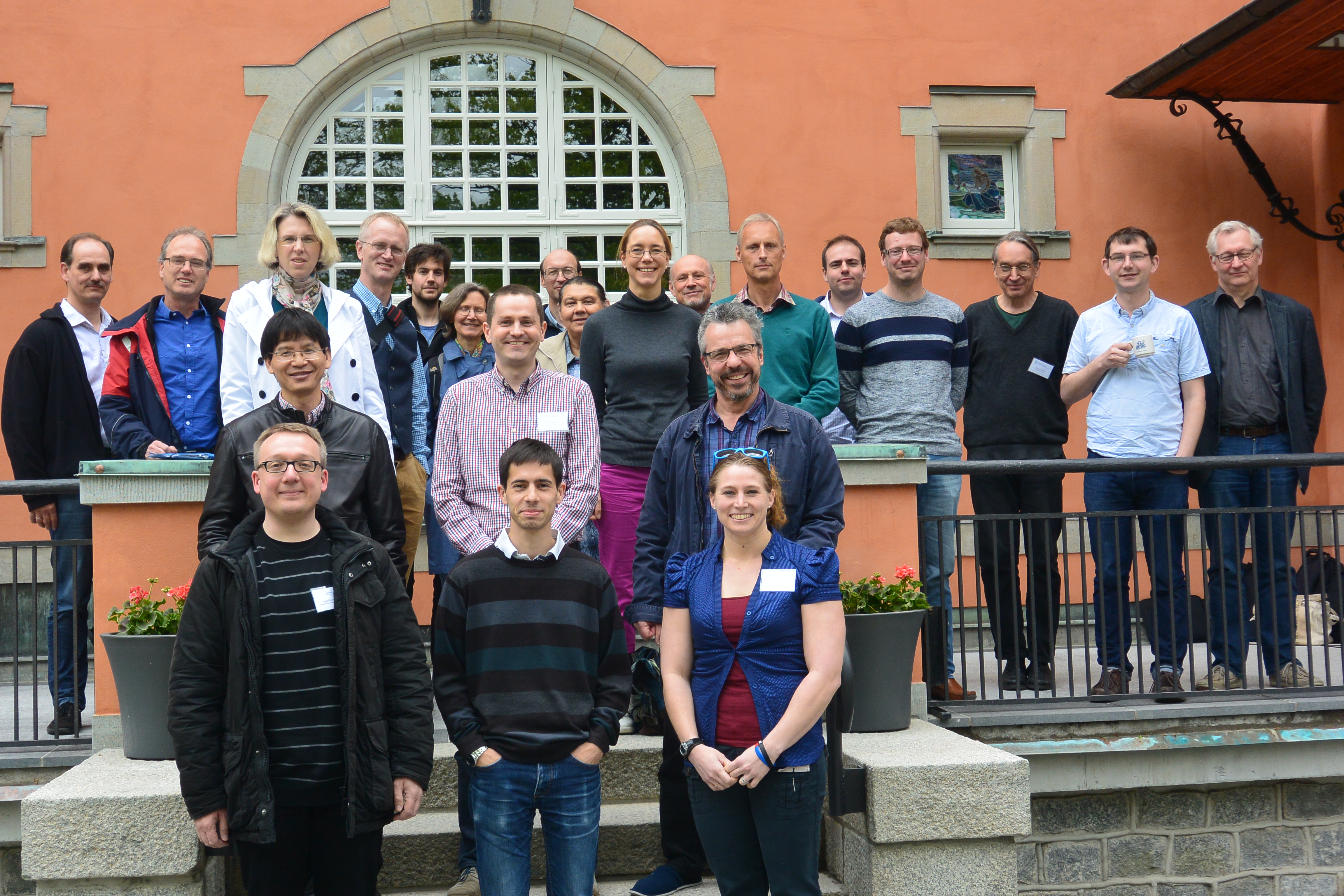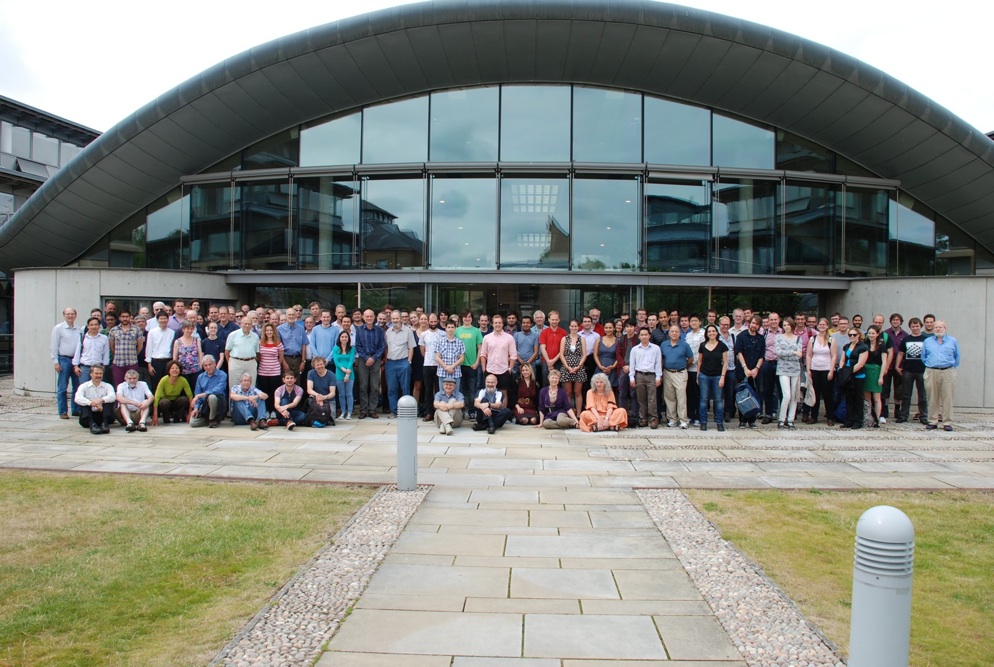Meetings | ||||
Home |
Teaching |
Research |
Seminars |
Meetings |
|
Groups and their applications, May 2019 Simple groups: New perspectives and applications, August 2018 Groups and their applications, February 2018 Groups and their applications, May 2017 Permutation groups: Methods and applications, January 2017 Groups and their applications, June 2016 Branching problems for reductive groups, May 2016 Algebra workshop, British Mathematical Colloquium, March 2016 Simple groups, representations and related topics, July 2015 Groups and their applications, May 2015
Groups and their applications, Bristol 2019In May 2019 I organised a one-day meeting in Bristol as part of the LMS-funded series Groups and their applications. Speakers:
Simple groups: New perspectives and applicationsIn August 2018, Adam Thomas and I organised a three-day meeting on Simple groups: New perspectives and applications at the University of Bristol. Speakers:
Groups and their applications, Bristol 2018In February 2018 I organised a one-day meeting in Bristol as part of the LMS-funded series Groups and their applications. Speakers:
Groups and their applications, Bristol 2017In May 2017 I organised a one-day meeting in Bristol as part of the LMS-funded series Groups and their applications. Speakers:
Permutation groups: Methods and applicationsIn January 2017 I co-organised a workshop on Permutation groups: Methods and applications at Bielefeld University. See the conference website for further details.  Main speakers:
Groups and their applications, Bristol 2016In June 2016 I organised a one-day meeting in Bristol as part of the LMS-funded series Groups and their applications. Speakers:
Branching problems for reductive groupsIn May 2016 I co-organised a workshop on Branching problems for reductive groups at the Institut Mittag-Leffler in Stockholm.  Algebra workshop, British Mathematical ColloquiumIn March 2016, the University of Bristol hosted the British Mathematical Colloquium, which is the largest Pure Mathematics conference to be held annually in the UK. The meeting included several workshops on different themes - Jeremy Rickard and I organised the algebra workshop. Workshop speakers:
Simple groups, representations and related topicsIn July 2015 I co-organised a conference on Simple groups, representations and related topics at the Centre for Mathematical Sciences in Cambridge. This meeting celebrated the hugely influential work of Martin Liebeck and Jan Saxl. A conference banquet was held at Gonville and Caius College on July 14th.  Speakers:
Groups and their applications, Bristol 2015In May 2015 I organised a one-day meeting in Bristol as part of the LMS-funded series Groups and their applications. This followed earlier meetings in 2014/15 at Birkbeck, Birmingham and Manchester. Programme: 14:00 - 15:00: Adam Thomas (University of Cambridge) Title: Complete reducibility in exceptional algebraic groups Abstract: The notion of complete reducibility was introduced by J.-P. Serre in 1998. It generalises the notion of a completely reducible module in classical representation theory. After giving an introduction to complete reducibility for algebraic groups, we discuss recent work with A. Litterick on classifying the subgroups of exceptional algebraic groups that are not completely reducible. The techniques used are a mix of standard representation theory, non-abelian cohomology and computational group theory. 15:00 - 15:30: Tea and coffee in the common room 15:30 - 16:30: Michael Bate (University of York) Title: Representation varieties, reductive pairs and a question of Külshammer Abstract: Let $\Gamma$ be a finite group. A natural and interesting way to think about the representation theory of $\Gamma$ over an algebraically closed field $k$ is to study the representation varieties $\mathrm{Hom}(\Gamma,\mathrm{GL}_n(k))$ for different $n$. These sets carry the structure of an affine variety, and the algebraic group $\mathrm{GL}_n(k)$ acts naturally. Understanding the orbit structure of this action allows one to use techniques from Geometric Invariant Theory to study representation-theoretic questions. For example, the closed orbits correspond to isomorphism classes of $n$-dimensional semisimple representations of $\Gamma$. More generally, one can study the variety $\mathrm{Hom}(\Gamma, G)$ for any reductive group $G$. In this talk I'll give a survey of some of the basic results in this area, including results of Richardson and Slodowy which allow one to relate the structure of $\mathrm{Hom}(\Gamma, G)$ to that of $\mathrm{Hom}(\Gamma, \mathrm{GL}_n(k))$, given an embedding $G \subseteq \mathrm{GL}_n(k)$. Some of my own work has explored the limitations of Richardson's techniques; in this vein I'll also present an example which answers a question of Külshammer. 16:30 - 17:30: Martin Liebeck (Imperial College) Title: Multiplicity-free representations of algebraic groups Abstract: A finite-dimensional representation of a group is said to be multiplicity-free if every irreducible representation appears at most once as a composition factor. I shall talk about the problem of classifying irreducible representations of simple algebraic groups for which the restriction to some proper subgroup is multiplicity-free. There are many interesting examples of such representations, and under suitable assumptions there is some hope of classifying them. There are also some nice connections with other aspects of algebraic group theory - for example, invariant theory and unipotent classes. |